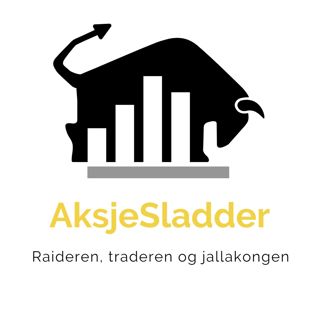
Dave's Killer Bread: Dave Dahl
Dave Dahl's entrepreneurial journey began in prison. In 1987, he was addicted to drugs and incarcerated for home burglary. For 15 years he bounced from one sentence to the next. But in the mid-2000s, Dave returned to his family bakery where he was inspired to make bread – organic, nutty, and slightly sweet. He sold the loaves at farmers markets and shared his story of recovery on the package – a branding decision that attracted fans and media attention. In 2015, the Dahl family sold the business for $275 million dollars. Today, Dave's Killer Bread sells over a dozen types of bread in grocery stores nationwide. PLUS in our postscript "How You Built That," armpit entrepreneurs Jason and Erica Feucht tell us how they turned whiskey and vodka into the natural deodorant Pit Liquor. See Privacy Policy at https://art19.com/privacy and California Privacy Notice at https://art19.com/privacy#do-not-sell-my-info.
1 Jul 20191h 7min

Yelp: Jeremy Stoppelman
In 2004, two former Paypal engineers, Jeremy Stoppelman and Russ Simmons, were spit-balling new internet ideas. Out of their brainstorm came a site where you would email your friends asking for local business recommendations. The launch was a flop, but they discovered that people seemed to enjoy writing reviews not just for friends, but for the general public. Fifteen years later, Yelp is a publicly traded company with more than 4,000 employees and over 140 million monthly visitors. PLUS in our postscript "How You Built That," Liz Bales explains how putting cat food inside plastic mice became her full-time business and why it could revolutionize the way humans feed their cats. See Privacy Policy at https://art19.com/privacy and California Privacy Notice at https://art19.com/privacy#do-not-sell-my-info.
24 Jun 201959min

Chesapeake Bay Candle: Mei Xu (2017)
Twenty-five years ago, after Mei Xu emigrated from China to the U.S., she loved going to Bloomingdale's to gaze at their housewares. She eventually started making candles in her basement with Campbell's Soup cans, an experiment that led to the multi-million dollar company Chesapeake Bay Candle. PLUS in our postscript "How You Built That," we check back with Dan Kurzrock and Jordan Schwartz, who turned up-cycled beer grain into a snack bar called ReGrained. See Privacy Policy at https://art19.com/privacy and California Privacy Notice at https://art19.com/privacy#do-not-sell-my-info.
17 Jun 201942min

Allbirds: Tim Brown & Joey Zwillinger
Growing up, Tim Brown discovered he was very good at two things: design and soccer. While playing professional soccer in New Zealand, he was turned off by the flashy logos on most athletic gear. He started making simple canvas shoes for his teammates, but soon discovered a better material: soft merino wool from his country's plentiful sheep. Meanwhile, on the other side of the world, his future business partner Joey Zwillinger was frustrated that most companies lacked a genuine commitment to sustainability. In 2015, Tim and Joey teamed up to create Allbirds, a company with two ambitious goals: create the world's most comfortable shoes, and do it in a way that was completely carbon-neutral. Today, just three years after launch, Allbirds is worth $1.4 billion. PLUS, for our postscript "How You Built That," how Kirby Erdely saw a problem with flying beach umbrellas and developed a new kind of tent stake—with a twist. See Privacy Policy at https://art19.com/privacy and California Privacy Notice at https://art19.com/privacy#do-not-sell-my-info.
10 Jun 20191h 9min

Live Episode! Tofurky: Seth Tibbott
Seth Tibbott may be the only founder in the world who grew his business while living in a barn, a teepee, and a treehouse. His off-the-grid lifestyle helped him save money as he started to sell tempeh, a protein made of fermented soybeans. Throughout the 1980s he barely scraped by, but things took a turn in 1995, when he discovered a stuffed tofu roast made in Portland, Oregon. Knowing vegetarians had few options at Thanksgiving, Seth named the roast Tofurky and started selling it at co-ops in the Pacific Northwest. Nearly 25 years later, Tofurky sells plant-based protein around the world, and has estimated sales of $40 million a year. Recorded live in Portland, Oregon. See Privacy Policy at https://art19.com/privacy and California Privacy Notice at https://art19.com/privacy#do-not-sell-my-info.
3 Jun 201946min

Stacy's Pita Chips: Stacy Madison
In the 1990's, Stacy Madison and her boyfriend Mark Andrus were selling pita sandwiches from a converted hot dog cart in Boston. They decided to bake the leftover pita into chips, adding a dash of parmesan or cinnamon-sugar. At first they handed them out for free, but soon discovered that people were happy to pay for them. So they eventually decided to leave the sandwich cart behind and launch Stacy's Pita Chips. They hoped the brand might grow into a modest regional business—but it kept growing. Roughly ten years after the launch, Stacy's sold to PepsiCo for $250 million. PLUS in our postscript "How You Built That," how Prerak Juthani and some friends from college took organic chemistry to the next level with REACT!, a board game that aims to demystify the stigma of molecular science. See Privacy Policy at https://art19.com/privacy and California Privacy Notice at https://art19.com/privacy#do-not-sell-my-info.
27 Mai 20191h 3min

Zappos: Tony Hsieh (2017)
Computer scientist Tony Hsieh made millions off the dot-com boom. But he didn't make his mark until he built Zappos — a customer service company that "happens to sell shoes." Now Zappos is worth over a billion dollars and known for its completely unorthodox management style. PLUS in our postscript "How You Built That," we check back with Mike Bolos and Jason Grohowski, who brought the office desk closer to the light by creating Deskview, a portable desk that attaches to a sheer window with a suction cup. (Original broadcast date: January 23, 2017). See Privacy Policy at https://art19.com/privacy and California Privacy Notice at https://art19.com/privacy#do-not-sell-my-info.
20 Mai 201932min

Belkin International: Chet Pipkin
Chet Pipkin was the kind of kid who loved to take things apart and put them back together. As a young man in the early 1980s, he started hanging out in mom-and-pop computer shops, where he realized he could meet a growing need by selling the cables that connect computers to printers. That simple idea became the main ingredient in Chet's secret sauce: instead of making his own computers, he would make the accessories needed to make them work. Belkin International eventually grew into a massive manufacturer of electronic goods — last year, it sold to a subsidiary of Foxconn for more than $800 million. PLUS in our postscript "How You Built That," how Clay McCabe decided to rebrand his dad's zipper repair business into Zipper Rescue, a repair kit that helps people fix their broken zippers at home. See Privacy Policy at https://art19.com/privacy and California Privacy Notice at https://art19.com/privacy#do-not-sell-my-info.
13 Mai 201952min






















